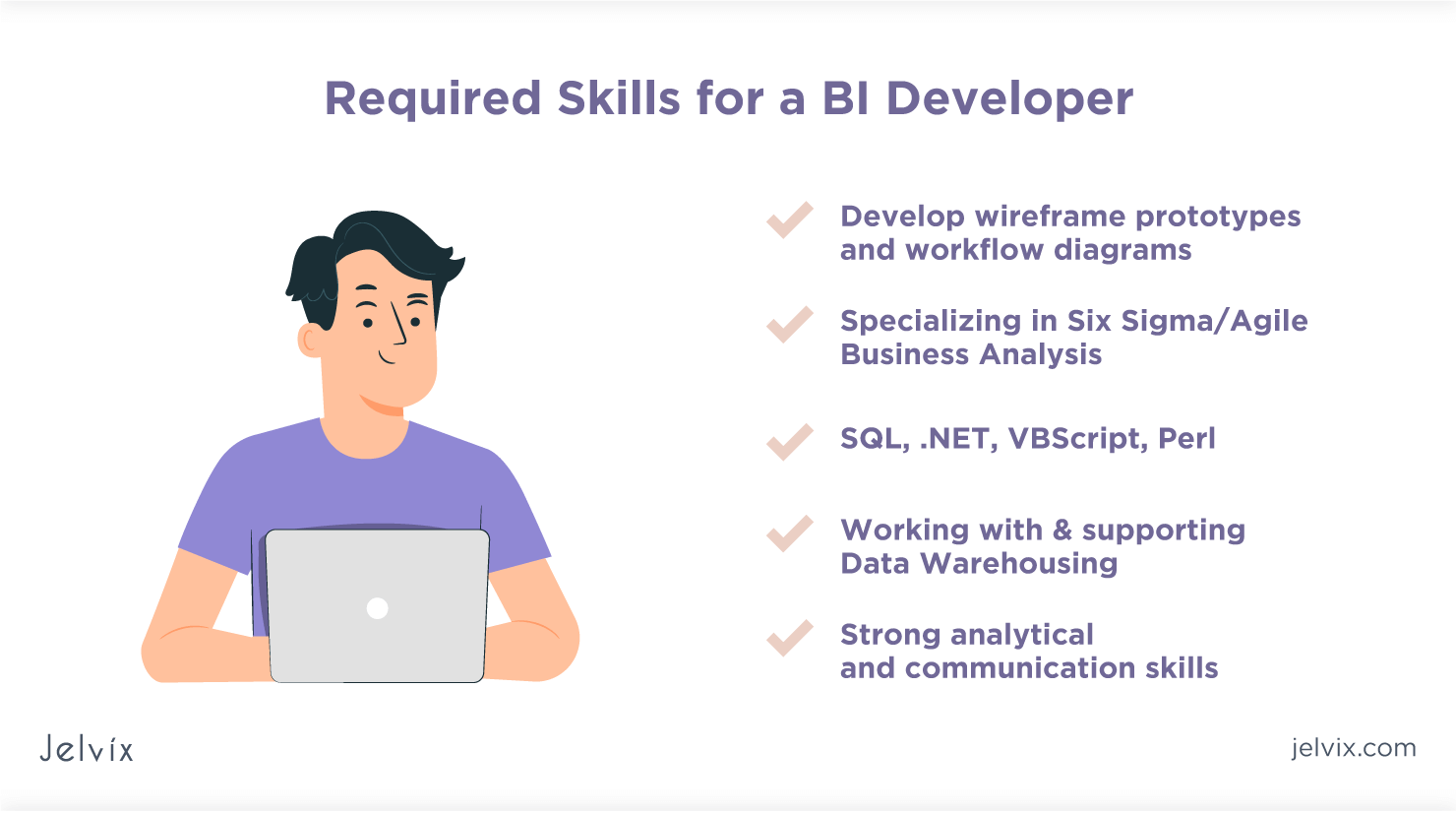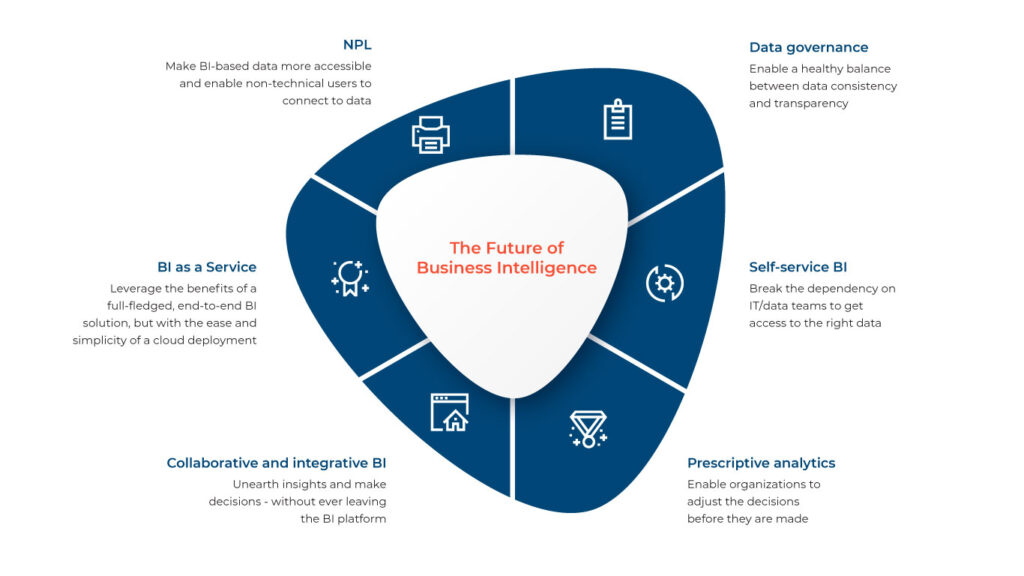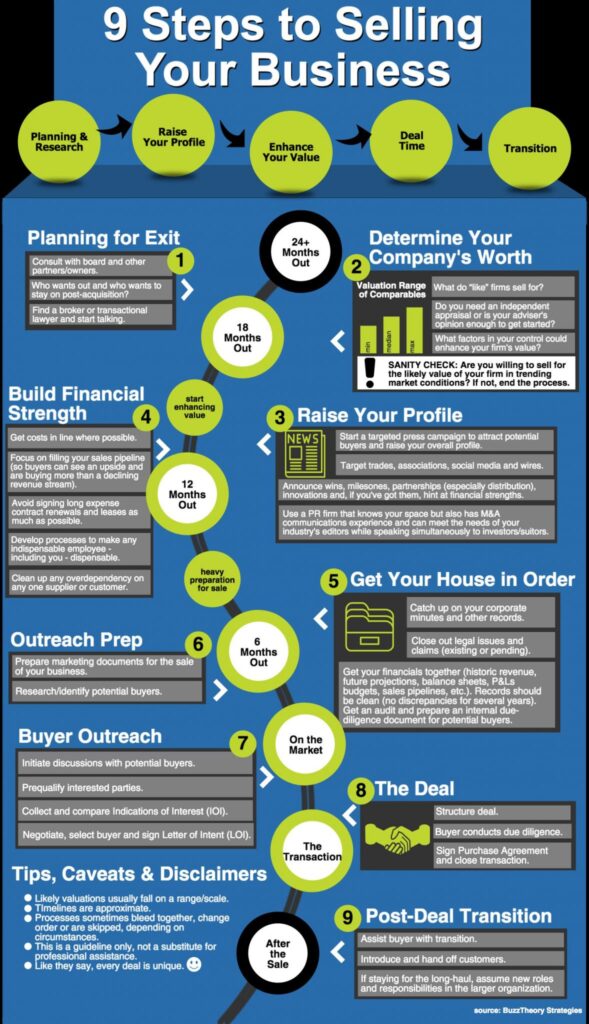In this digital age, businesses are relying more and more on data-driven decision-making. As a result, the demand for business intelligence developers has skyrocketed. If you’re interested in a career in tech and have a passion for analyzing and interpreting data, becoming a business intelligence developer might be the perfect path for you.
As a business intelligence developer, you’ll be responsible for designing, building, and maintaining the technology infrastructure necessary for businesses to make informed decisions. This includes developing powerful data visualizations, designing databases, and creating data models. If you’re a problem-solver who loves working with numbers and technology, read on to learn more about how you can become a business intelligence developer.
Becoming a business intelligence developer requires a combination of technical, analytical, and business skills. To become a successful business intelligence developer, you should have a deep understanding of the data mining process, analytics tools, and database technologies. Additionally, you should be experienced in programming languages like SQL, Python, and R. Furthermore, it’s essential to have a strong grasp of business concepts, as well as excellent communication skills.
- Start by learning the basics of database technologies and programming languages like SQL, Python, and R.
- Gain a deep understanding of the data mining process and analytics tools.
- Develop an understanding of business concepts.
- Improve your communication skills.
- Gain experience by joining an internship or a part-time job.
- Look for full-time jobs in the field of business intelligence.

How to Become a Business Intelligence Developer
Business Intelligence (BI) is a collection of processes and technologies used to analyze vast amounts of data in order to make informed decisions. Business Intelligence developers are the people behind the scenes who ensure the success of these processes. Becoming a BI developer requires a combination of technical knowledge, analytical skills, and problem-solving abilities. Read on to learn more about how to become a BI developer.
Step 1: Get a Degree in Computer Science or a Related Field
The first step to becoming a BI developer is to obtain a degree in computer science or a related field. A Bachelor’s degree in computer science, information systems, or software engineering will provide a solid foundation for the skills needed to excel in the field. Coursework should include data structures, database systems, software engineering, and web-based programming languages.
If you already have a degree in a related field, you may be able to pursue an online certificate in business intelligence or data analytics. This type of program will provide an in-depth understanding of the concepts and software used in BI development.
Step 2: Obtain Relevant Work Experience
It is important to gain experience in the field of BI development before applying for jobs. This may include internships, part-time jobs, or volunteer work. You should also consider taking part in hackathons or other open source projects to gain experience and demonstrate your skills. Additionally, some companies offer training programs for aspiring BI developers.
You should also take the time to familiarize yourself with the tools and technologies used in BI development. This includes data analysis tools such as Tableau and Power BI, as well as programming languages such as SQL and Python. You should also have a basic understanding of data warehousing and ETL (Extract, Transform, Load) processes.
Step 3: Become Certified
Many employers prefer to hire BI developers who have obtained one or more professional certifications. Examples of certifications include the Microsoft Certified Solutions Associate (MCSA) in Business Intelligence or the Cloudera Certified Associate in Data Analysis. These certifications demonstrate your knowledge and proficiency in the field of BI development.
It is also important to stay up to date with the latest trends and technologies in the field of business intelligence. This may include reading industry blogs, attending conferences and seminars, or taking online courses. You should also join professional organizations such as the International Association of Business Intelligence Professionals (IABIP) to keep abreast of the latest developments in the field.
Step 4: Find a Job
Once you have obtained the necessary qualifications and experience, you can begin to search for job opportunities. Many companies advertise BI developer positions on job boards and websites such as Indeed and Monster. You can also contact recruiters and headhunters to help you find job openings.
When applying for jobs, you should include a cover letter that outlines your qualifications and experience. You should also highlight your technical skills and any certifications you have obtained. It is also important to include a portfolio of your work to demonstrate your expertise in the field.
Frequently Asked Questions
Becoming a Business Intelligence Developer requires a mixture of technical knowledge, analytical skills and experience. Here are some of the most frequently asked questions about how to become a Business Intelligence Developer.
What is a Business Intelligence Developer?
A Business Intelligence Developer is a professional who is responsible for designing, developing and maintaining business intelligence solutions. They are responsible for helping business leaders make informed decisions based on data. This includes creating data models, developing data visualizations, and creating dashboards and reports.
What Skills Do I Need to Become a Business Intelligence Developer?
Business Intelligence Developers need to have a strong understanding of data analysis, data manipulation, data visualization and database technologies. They need to be proficient in SQL, data modeling, scripting, coding, and ETL (Extract, Transform and Load) processes. Additionally, they must have strong problem solving and analytical skills, as well as strong communication skills.
How Do I Become a Business Intelligence Developer?
The best way to become a Business Intelligence Developer is to start by gaining relevant experience in the field. You can do this by taking courses, internships, and certifications related to the field. Additionally, it is important to have a strong understanding of the tools and technologies used by Business Intelligence Developers. Once you have the required knowledge and experience, you can apply for entry-level positions and build your career from there.
What Education is Required to Become a Business Intelligence Developer?
Most Business Intelligence Developers have a Bachelor’s Degree in Computer Science, Information Technology or a related field. However, some employers may prefer candidates who have a Master’s degree or additional certifications. Additionally, it is important to have a strong understanding of the databases, programming languages and tools used by Business Intelligence Developers.
What is the Job Outlook for a Business Intelligence Developer?
According to the Bureau of Labor Statistics, the job outlook for Business Intelligence Developers is projected to grow 11% from 2018 to 2028. This is faster than average for all occupations. As businesses continue to rely more on data-driven decisions, the demand for Business Intelligence Developers is expected to increase.

In conclusion, becoming a business intelligence developer requires a combination of technical skills, analytical thinking, and business acumen. It is a challenging yet rewarding career choice that can provide opportunities for growth and advancement. With the increasing demand for data-driven decision making in the business world, the need for skilled business intelligence developers is only going to rise.
If you are interested in pursuing a career in this field, take the time to acquire the necessary skills and knowledge. Invest in learning programming languages, data analysis tools, and business concepts. Stay up-to-date with industry trends and best practices. And most importantly, never stop learning and experimenting with new ideas. With hard work and dedication, you can become a successful business intelligence developer and make a meaningful impact on the organizations you work for.


